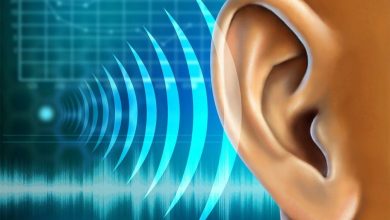Managing Nasal Bleeding: A Comprehensive Guide to Dealing with Nosebleeds

Nasal bleeding, also known as epistaxis, is a common occurrence that can range from a minor inconvenience to a worrisome situation. While nosebleeds are typically not life-threatening, knowing how to effectively manage them is essential. In this article, we will explore the causes of nosebleeds and provide practical steps for dealing with them.
1. Understanding Nasal Anatomy
- The nasal cavity contains delicate blood vessels that are prone to bleeding due to their location and sensitivity.
2. Common Causes of Nosebleeds:
- Dry air, irritation, trauma, and underlying medical conditions such as hypertension can trigger nasal bleeding.
3. Immediate Response:
- If a nosebleed occurs, stay calm. Tilt your head slightly forward to prevent blood from flowing down the throat.
4. Pinch and Pressure:
- Gently pinch the soft part of your nose (the nostrils) together with your fingers. Maintain constant pressure for 5-10 minutes.
5. Ice Pack:
- Applying a cold compress or ice pack to the bridge of your nose can help constrict blood vessels and slow bleeding.
6. Humidify the Air:
- Dry air can contribute to nasal irritation and bleeding. Using a humidifier can help keep nasal passages moist.
7. Nasal Saline Spray:
- Over-the-counter nasal saline sprays can help keep the nasal passages hydrated and prevent dryness.
8. Avoid Irritants:
- Refrain from activities that can irritate the nasal lining, such as aggressive nose blowing or picking.
9. Nasal Lubricants:
- Applying a thin layer of petroleum jelly or saline-based nasal lubricants can help prevent dryness and irritation.
10. Avoid Hot Beverages: – Hot drinks can dilate blood vessels and increase the risk of bleeding. Opt for cooler beverages.
11. Head Elevation: – Sleeping with your head elevated can reduce the likelihood of blood pooling in the nasal passages.
12. Seek Medical Attention: – If bleeding persists for more than 20 minutes despite home remedies or if it’s accompanied by dizziness, seek medical help.
13. Nasal Packing: – In severe cases, a healthcare professional may insert nasal packing to control bleeding.
14. Caution for Blood Thinners: – If you’re taking blood-thinning medications, consult your doctor for guidance on managing nosebleeds.
15. Prevention Measures: – Maintaining proper nasal hygiene, using a humidifier, and staying hydrated can help prevent future nosebleeds.
Nasal bleeding can be managed effectively with simple home remedies and a calm approach. By understanding the causes and taking proactive measures to prevent dryness and irritation, you can minimize the occurrence of nosebleeds. In cases of persistent or severe bleeding, seeking medical attention is crucial to ensure your safety and well-being. With the right knowledge and strategies, you can confidently address nosebleeds and maintain optimal nasal health.
Addressing Frequent Nosebleeds: Strategies for Managing Recurring Nasal Bleeding
Experiencing frequent or recurring nosebleeds can be both frustrating and concerning. While they are often harmless, chronic nosebleeds can disrupt daily life and raise questions about underlying causes and effective solutions. In this article, we will explore practical strategies to address and manage the challenge of frequent nosebleeds.
1. Understand the Triggers:
- Keep a journal to identify potential triggers for your frequent nosebleeds, such as changes in weather, allergens, or activities that may irritate the nasal lining.
2. Hydration Is Key:
- Staying well-hydrated helps maintain the moisture levels in your nasal passages, reducing the likelihood of dryness and irritation.
3. Humidify the Air:
- Use a humidifier to add moisture to the air in your living space, especially during dry seasons or in air-conditioned environments.
4. Nasal Saline Rinse:
- Regular use of a nasal saline rinse can help keep your nasal passages hydrated and free from irritants.
5. Nasal Lubricants:
- Apply a thin layer of petroleum jelly or saline-based nasal lubricants to keep the nasal lining moist and prevent dryness.
6. Avoid Irritants:
- Minimize exposure to irritants such as cigarette smoke, strong odors, and chemical fumes that can trigger nosebleeds.
7. Gentle Nose Blowing:
- Blow your nose gently to avoid excessive force that may injure the blood vessels in your nasal passages.
8. Nasal Sprays:
- Over-the-counter nasal sprays that contain saline or saline solutions can help keep the nasal passages moist.
9. Balanced Nutrition:
- Ensure you have a well-balanced diet rich in vitamins and minerals that promote healthy blood vessels and overall vascular health.
10. Blood Pressure Management: – Monitor and manage your blood pressure, as hypertension can contribute to frequent nosebleeds.
11. Consult an Allergist: – If allergies are a potential trigger, consulting an allergist can help identify specific allergens and provide appropriate management.
12. Gentle Hygiene Practices: – Avoid excessive nose picking, which can damage delicate blood vessels and lead to bleeding.
13. Stay Calm: – When a nosebleed occurs, stay calm and follow proper techniques for stopping the bleeding.
14. Vitamin K-Rich Foods: – Foods rich in vitamin K, such as leafy greens, broccoli, and Brussels sprouts, support blood clotting and vascular health.
15. Medical Evaluation: – If frequent nosebleeds persist despite your efforts, consult a healthcare professional for a thorough evaluation and appropriate guidance.
Managing frequent nosebleeds requires a combination of proactive measures, lifestyle adjustments, and professional guidance. By identifying triggers, maintaining proper hydration, and adopting gentle nasal hygiene practices, you can significantly reduce the occurrence of nosebleeds. If the issue persists or worsens, seeking medical evaluation ensures a comprehensive understanding of the underlying causes and personalized strategies for effective management. With patience, awareness, and a commitment to your well-being, you can take control of frequent nosebleeds and enjoy improved nasal health.
















